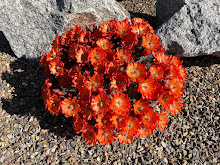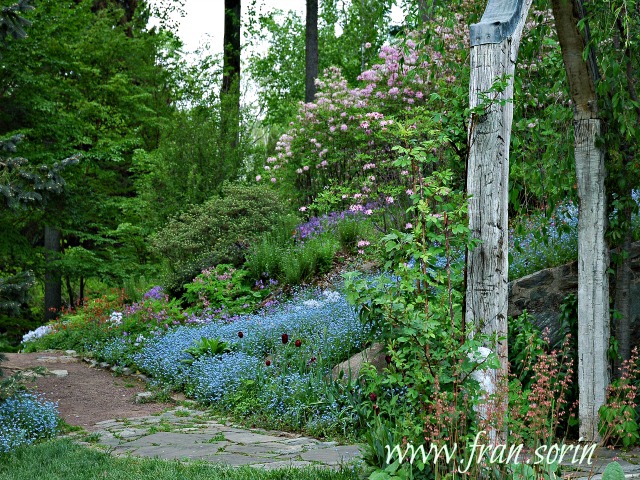Of course you go to China, or Taiwan as we did, and you expect to drink tea. Tea is considered to be one of the seven necessities of life, but it is often not the tea we drink at home. Made from the leaves of Camelia sinensis, how the leaves are treated results in the different types of tea. Most often in Chinese restaurants it will be green tea or an infusion made with chrysanthemum petals. As we found on our visit teas are often made from herbal infusions.
Unless you are in the know you might not be aware of how the tea is packaged. This was a tea shop in Kenting. What a fascinating way to package the tea.
And another shop in Taipei. If you want a teapot then you have to go to another store.
I'm afraid this size of teapot would not do for the English.
On our trip to the southern part of the island we headed up into the hills where the tea is grown on terraced hillsides. Everywhere neat rows of tea plants to make picking easier.
Back in Taipei visiting the markets we came across the street of teas.
But as we soon found these teas were a little different.
It seems like they make these herbal teas from just about everything that grows.
Now this is a surprise. Surely they don't make tea from graptopetalum?
David explores further.
and finds cactus. Surely not! But a google search brings up teas made from both these plants.
There was a tea stall in front of the store and we sampled the herbal tea. I have no idea what was in the mix and could only discern a hint of mint. I'm sure it had to be good for us.
So on our first morning home, when I made our pot of morning breakfast tea ( typhoo decaf) I'm sorry to say that David said. "That's the best cup of tea I have had in 6 weeks" We like our black tea at this house.
Campus stroll at Rice University
43 minutes ago







































8 comments:
Interesting to know little things behind a cup of tea.... lovely post.
I'm so glad you are home. I missed your blog posts and look forward to your Asian trip pics.
My daughter has a trip to China planned for March and she shares her travels. She just got back from visiting gorillas in Rwanda.
What an adventure. I first thought your post my be about the secrets of good English tea... even better to see the hillside of tea plants growing.
♥ So many interesting photos. I don't like tea and I never drink it but I love all the baskets with herbs. I'm sure the whole street smells like a big green meadow.
Fascinating. Given the wide range of apparent options, I'm frankly surprised that we don't see cactus or succulent tea marketed in this country.
Ha, that is funny. I'm sure it was fun exploring those tea shops, though! I was able to visit some tea plantations in India a few years ago - they are so beautiful with their terraces. Unfortunately I never could learn to like tea. Tea seems much better for you than coffee (my drink of choice.)
Hats off to Thomas Lipton! Black tea is what I first had to drink as "hot tea" (here in the South you often need to clarify between hot and iced) growing up, and that flavor sticks with me as what tea is really supposed to taste like. Happy to hear you are safely back home and looking forward to hearing more about your travels and seeing how your garden is holding up through our cold weather this winter.
Lovely photos. I always enjoy the care with which things are wrapped and the beautiful designs on the papers, which I see here. In Japan the wrapping of purchased items is almost ceremonial. I couldn't get used to the tea there either. It always tasted of seaweed, which made me gag at breakfast, so I left it off. Like David, I was so glad to return home to my beloved Earl Grey! Looking forward to more pics of your travels!
Post a Comment